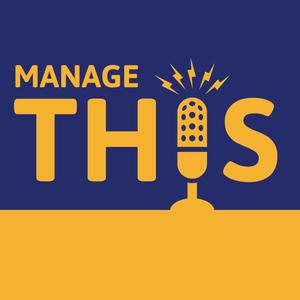Episode 196 – The Hidden Value: Understanding Benefits Realization
The podcast by project managers for project managers. Are your projects truly delivering the promised benefits? Rasmus Rytter explains the often overlooked realm of Benefits Realization. He explains why so many projects miss the mark on delivering measurable benefits and shares strategies to implement to maximize value. Hear about the significance of engaging with sponsors, tracking progress, and analyzing outcomes for future improvements.
Table of Contents
02:37 … Why Benefits Management?03:54 … What is Benefits Realization?04:34 … Why Projects Fail to Deliver?07:55 … Other Reasons for Failure09:41 … How to Create Value14:17 … Looking Beyond Deliverables17:19 … Reassessing Throughout the Life of the Project20:27 … How Benefits Change over Time22:18 … Kevin and Kyle23:35 … A Cause-and-Effect Relationship25:42 … Project Sponsor Relationship28:37 … Successful Project Closure32:12 … Challenges to Change Implementation35:19 … The Benefits Realization Book36:50 … Contact Rasmus37:36 … Closing
RASMUS RYTTER: And you keep having those conversations up until a point where you say, okay, now we’ve done some analysis. We have sort of a fair idea about, you know, what’s the IT part going to cost, and how expensive this change part is going to be, and then also what benefits can we realize? And then the sponsor can say, yes, it’s still an excellent project. Let’s go. Or, no, it’s probably better that we spend some of our efforts on another project. So we want to do some analysis to begin with, to have that conversation with the sponsors to make sure that we are not initiating projects that can’t really create the benefits that we dreamt of.
WENDY GROUNDS: Welcome to Manage This, the podcast by project managers for project managers. I’m Wendy Grounds, and with me in the studio is Bill Yates and Danny Brewer, our sound guy.
Our guest today is Rasmus Rytter. He is a partner, a consultant, and advisor from Implement Consulting Group, and he is the author of the book “Benefits Realisation: The Change-Driven Approach to Project Success.” Rasmus is an author, a speaker, and a renowned expert within benefits realization and organizational change. Before joining Implement, he worked for 10 years as a project manager, program manager, and people manager; and he is definitely well versed in benefits realization. We’ve really enjoyed getting to meet Rasmus.
If you’re rethinking benefits in business projects, and you want to dive into why so many projects miss the mark on delivering expected benefits, we’re going to shift the focus from mere deliverables to real value creation in this podcast. We want to explore the project manager’s perspective on benefits realization and discover strategies for maximizing project value. And Rasmus has excellent advice in all of that.
BILL YATES: He does. He’s so down to earth with this advice, too. He started out as a project manager, and he has delivered, I’m using air quotes, “successful projects” where he looked back on it and went, “They never used the thing that we built.” You know, I’ve experienced that, too; and that’s a very frustrating, it’s a deflating feeling. And through that, I think it spurred his interest in looking at the long-term impact of a project, which is really what are the benefits after that project is done, the team has finished, the project manager has moved on to the next project. What are they doing with the outcome? So we’re going to focus on that. He’s going to share great advice for us so that we can make sure that our projects have a lasting impact.
WENDY GROUNDS: Rasmus, welcome to Manage This. We’re so glad you’re with us today.
RASMUS RYTTER: I’m so glad that you would have me.
Why Benefits Management?
WENDY GROUNDS: The first thing is just tell us a bit about your passion for benefits management. Tell us about your “why” behind this.
RASMUS RYTTER: Well, I think we should start by, you know,
4 March 2024, 10:14 pm
